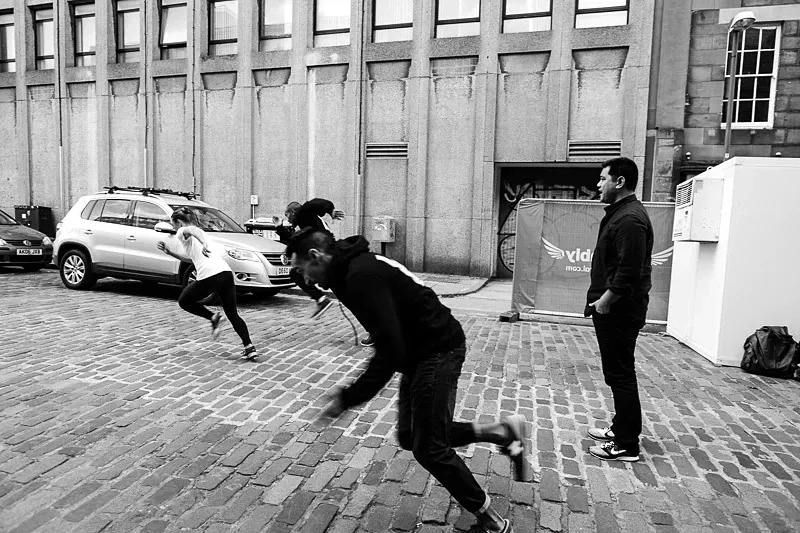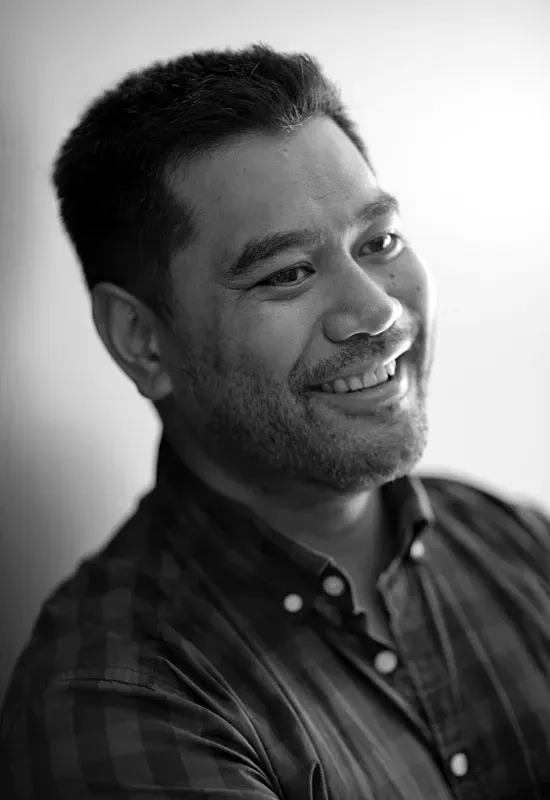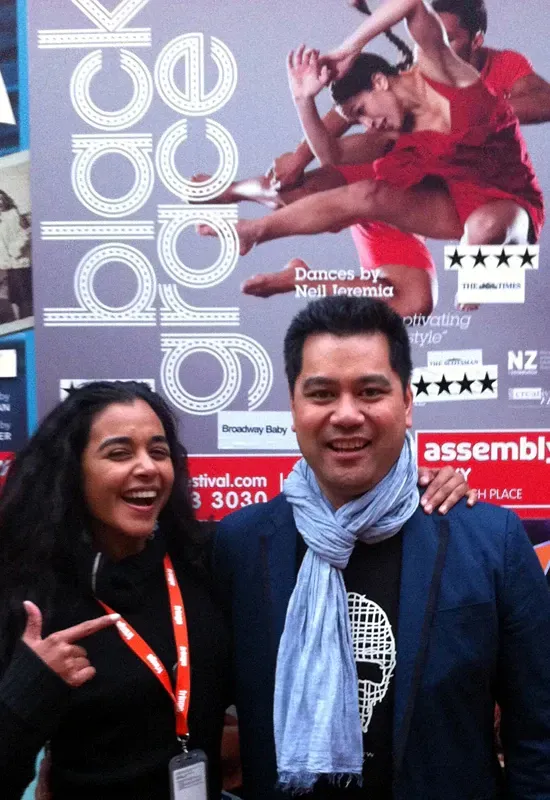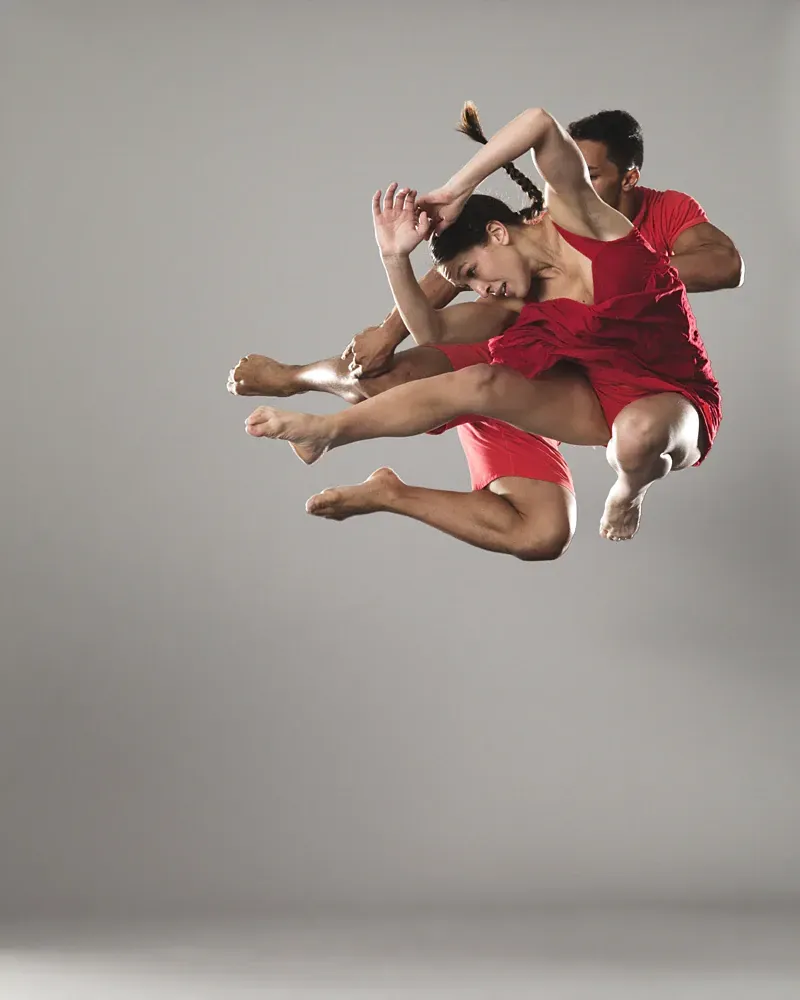In his own time
Written by
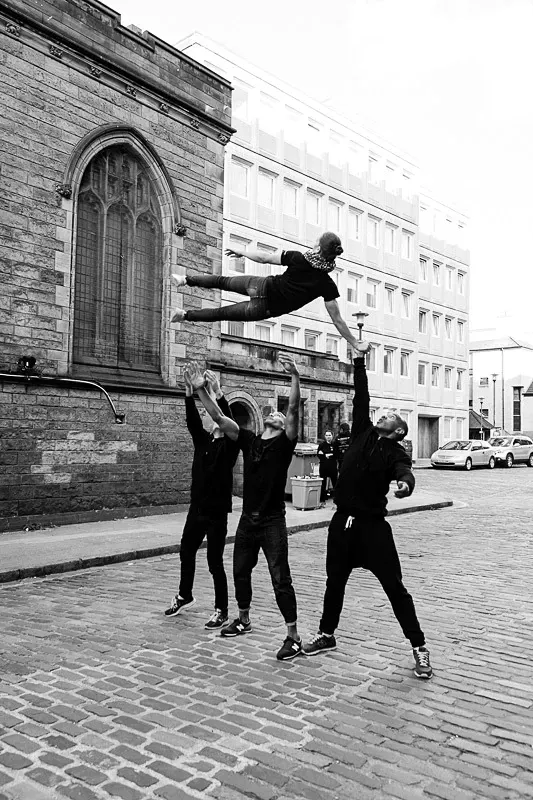
New Zealand’s dance landscape has changed dramatically over the past 20 years and one of the most prominent sculptors has been Neil Ieremia’s company Black Grace.
Ieremia tells Dione Joseph why the time was right to take it to Edinburgh Fringe.
* * *
“I wanted to tell stories that were important to me and reflected who I was – I wanted to tell stories from the places that I grew up rather than telling stories from places where other choreographers grew up.”
And so in response to the very visible absence of Pacific Island choreographers in the industry Neil Ieremia founded Black Grace in 1995.
Since then the premise upon which the company was founded has remain unchanged. Personal stories. Owning those stories. And doing so at an international level that is recognised for its artistic merit.
At this year’s Edinburgh Fringe Festival Black Grace brings a showcase of excerpts from different works over the last 20 years and offers the audience a chance to engage with different themes, stories and styles that charter the company’s oeuvre since it was founded.
“Somebody called it a compilation the other day,” muses Ieremia, “and I haven’t heard that since the days of mix tapes when I was a kid - but I guess it really is a compilation of shows that were designed to fit into the venue and in all honesty, to fit into the Fringe.”
And the Fringe, in no uncertain terms, is a beast.
And not a cute Disney version which will guarantee a charming happily-ever-after for the artists who come here. The competition is incredibly intense, the average audience size are between 2-5 (which while scary is also a skewed statistic as there are 10 percent shows that consistently sell out) and those who come unprepared often find the experience overwhelming. And not making much (any, if at all) money.
But acknowledging those concerns is the first step.
“This is my first trip to Edinburgh and the whole format is unfamiliar,” explains Ieremia, “We were very concerned as to how we would get a programme together that was both efficient and economical - but simultaneously preserved the artistic integrity of the choreography.”
A challenge that was met but required planning, consideration and research not just in developing a suitable programme but also in questioning whether the time was right to take Black Grace to the Fringe.
“I must admit that I’ve resisted the urge for many years,” confesses Ieremia, “Lots of close friends and colleagues have wanted me to come but I hadn’t seen the point to be honest - but then again I like doing things in my own time.”
And timing, as almost every seasoned artist will tell you, is everything.
“Black Grace is a 20-year-old company but that doesn’t mean all our performers have been with the company for 20 years,” says Ieremia, “So choosing to come to the Fringe this year was actually a great opportunity for them to learn their craft, have some professional development, get a chance to flyer and advertise their work, really hustle - but also to get back to their roots of why we do what we do.”
With dancers from all over New Zealand (and two from the USA) an ensemble of both male and female members and range of ages across the company, Black Grace is not just a dance company - it’s a collective of individuals who are committed to producing work that goes beyond the expectations of the domestic market.
“I don’t want to be a big fish in a small pond - I like to get out there and test myself,” says Ieremia.
“I always consider myself a citizen of the planet rather than an individual who calls NZ my backyard and I think it’s important that as our role starts getting bigger on an international stage we need to recognise that our audiences are smart and sophisticated and they deserve more than what’s just ‘good enough’ back home.”
Ieremia’s ethos is also visible in his thoughts on for whom he is developing his new works.
“I always think it’s great to see people like me in the audience: brown faces, Maori, Pacific and Indigenous people – but whoever turns up turns up – and that’s just as important.”
While often touted a cliche, the notion that great art is accessible to all audience is one of Ieremia’s unwavering beliefs. “Our dance work does offer an opportunity for people to engage, and irrespective of whatever demographic factors attempt to separate us – we do feel that every audience we have is responding to our work. Some people will love it and other’s wont – and that’s okay.”
This year after performing 24 consecutive shows at the Fringe the company are heading to Seoul for a one-off dance event before returning home to New Zealand – where they will continue under the leadership of Ieremia to make uncompromisingly brilliant work.
Because the truth of the matter is, it’s no longer about just us.
The world may have been baptized as a stage in the 1600s but in fact for New Zealand performances it is precisely the opposite: our stage is the world. And that is where we will continue to perform.
